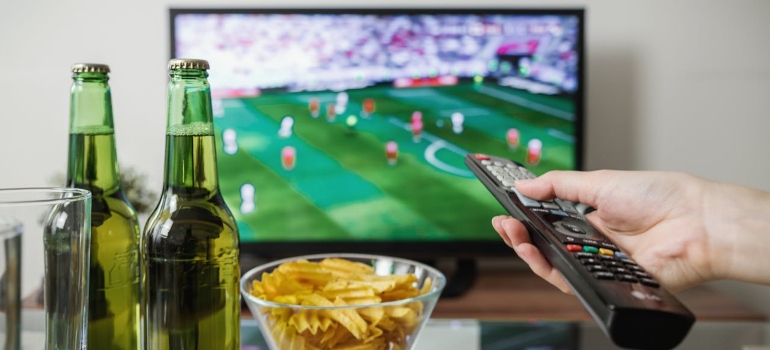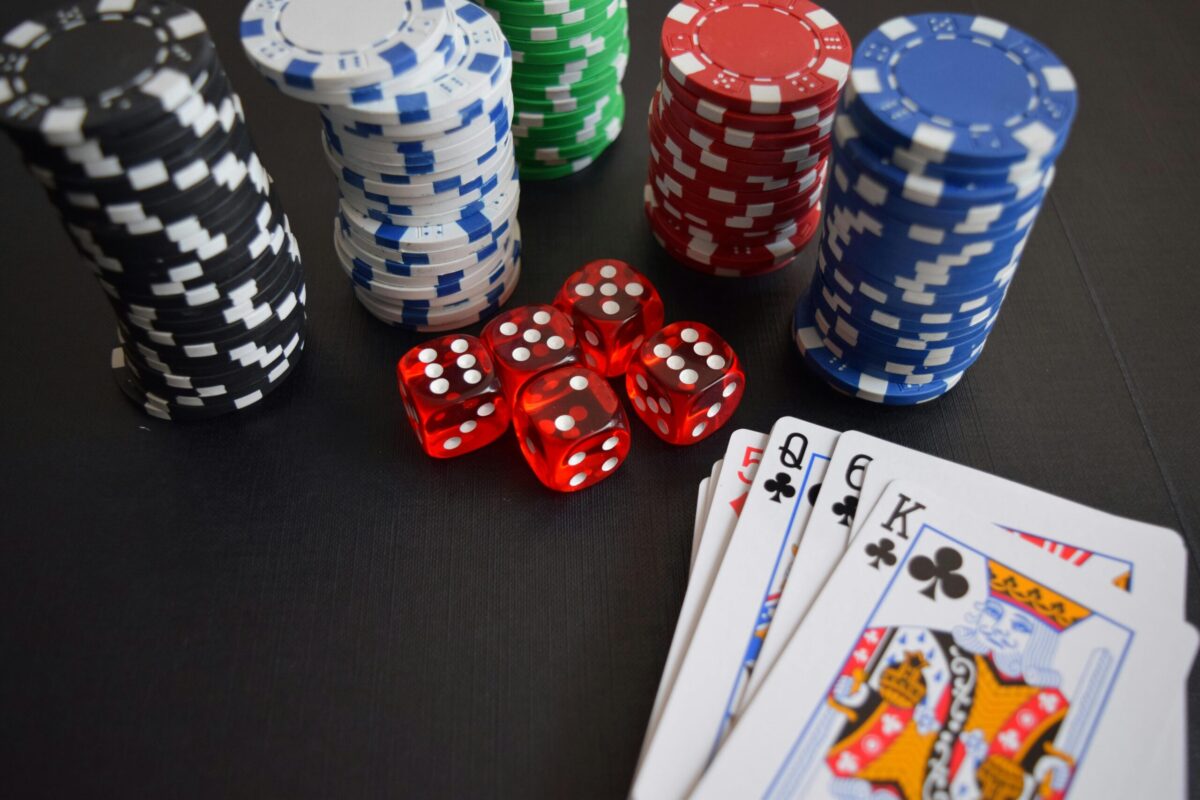Fantasy sports are often seen as harmless fun — just stats, drafts, and friendly competition. But for some, they can lead to real emotional, financial, and behavioral harm. The excitement of building a perfect lineup or winning a league pot can mask deeper issues. We will explore the connection between fantasy sports and problem gambling, and what happens when a simple hobby becomes a dangerous pattern. As a Massachusetts mental health center, East Point Behavioral Health believes understanding this issue is the first step toward prevention and recovery.
Is Fantasy Sports Gambling? Here’s What You Should Know
Many fans argue that fantasy sports rely on skill — after all, they involve analyzing player stats and making calculated choices. However, in that case, could fantasy sports even be considered gambling? The answer is more complicated. While long-term leagues may feel strategic, daily fantasy sports and problem gambling often go hand in hand.

Daily and weekly contests involve:
- Real money wagers
- Outcomes tied to uncertain events like injuries
- Rapid win/loss cycles similar to casino games
This setup activates reward systems in the brain and encourages risk-taking. Even though laws differ from state to state, the gambling risks of fantasy sports are increasingly recognized. The structure — fast, high-stakes, and reward-based — mirrors many aspects of traditional gambling.
Can Playing Fantasy Sports Lead to Gambling Addiction?
The short answer: yes. What begins as a fun activity can develop into a harmful habit, especially when money and competition are involved. For many people, the thrill of making the perfect pick or chasing a win after a loss becomes overwhelming.
Fantasy sports addiction can show up in surprising ways:
- Obsessively checking lineups or player stats
- Hiding money spent on entry fees
- Missing work or social events due to contests
As the addiction builds, users may begin to experience emotional changes. The highs of a win may be followed by crushing lows, leading some to spiral into deeper forms of sports betting addiction. For many, fantasy sports can serve as a gateway behavior, pushing them toward even riskier types of gambling.
Why are Daily Fantasy Sports Especially Risky?
So, why are daily fantasy sports especially risky compared to traditional season-long leagues? One reason is the instant gratification they offer. In daily contests, users bet on lineups and find out if they’ve won within hours. This quick cycle creates a loop of anticipation and reward.
Daily fantasy platforms also use aggressive techniques to keep users engaged:
- Bonuses for signing up or referring friends
- Targeted marketing showing “easy” wins
- Encouraging repeat play through loss recovery ads
Furthermore, the psychological impact of gambling ads is powerful. Many users are constantly bombarded with reminders—from push notifications to targeted social media promotions — making it difficult to stop engaging. These ads often present fantasy sports as easy wins or harmless entertainment, which can downplay the real risks involved. Over time, this constant exposure can normalize gambling-like behavior and make it harder for individuals to recognize when their habits have become harmful.

Additionally, the mobile format — available anytime, anywhere — adds another layer of risk. Users can place bets or update lineups in seconds, often without thinking twice. It’s been shown that mobile games trigger gambling behaviors, especially in individuals prone to impulsivity or anxiety. The convenience of mobile access creates an environment where urges can be acted on instantly, reinforcing compulsive patterns and increasing the likelihood of addiction.
What Are the Signs Of a Problem with Fantasy Sports Gambling?
Recognizing addiction is not always easy, especially when the behavior is normalized in social circles. But there are clear signs of addiction in fantasy sports players that can help families, friends, and the individuals themselves identify when something is wrong.
Some common red flags include:
- Increased secrecy about fantasy leagues or app usage
- Lying about the amount of money lost or spent
- Irritability when not playing
- Neglecting responsibilities or relationships
When fantasy sports stop being a source of joy and start creating financial stress or emotional turmoil, that’s a warning sign. Many individuals don’t realize how far things have gone until they’re overwhelmed, caught in a cycle of compulsive fantasy sports betting.
How Fantasy Sports Gambling Affects Mental Health
There’s no denying the emotional toll that comes with gambling issues. Whether you’re winning or losing, the psychological cost adds up. Players may experience increased anxiety, mood swings, low self-esteem, and even depression. The emotional rollercoaster of fantasy gambling mimics what’s seen in other forms of behavioral addiction.
Fantasy gambling problems often go hand-in-hand with:
- Pre-existing mental health issues like ADHD or trauma
- Emotional dysregulation during high-stakes periods
- Trouble sleeping or relaxing without betting involvement
This creates a vicious cycle. Wins temporarily relieve emotional distress, but losses reinforce shame, causing more obsessive play. When untreated, the behavior worsens over time, affecting relationships, work performance, and overall well-being.
What Treatment Options are Available for Fantasy Sports Addiction?
The good news? Help is available. People affected by gambling-related issues don’t need to hit rock bottom to make a change. Early intervention is always better. Understanding how daily fantasy sports contribute to gambling problems can help individuals and families recognize the risks before things spiral. Even small shifts in behavior, like spending more time on apps or feeling anxious about match outcomes, can be early warning signs worth addressing.

Treatment options include:
- Cognitive Behavioral Therapy (CBT): Helps reframe unhealthy thoughts and behaviors
- Support groups: Offers shared experiences and accountability
- Family counseling: Helps rebuild trust and support systems
- Digital detox plans: Reduce app use and emotional triggers
At East Point Behavioral Health, we specialize in treating modern forms of gambling addiction, including issues rooted in digital platforms and sports-related behaviors. Whether someone is dealing with fantasy leagues, DFS, or broader betting habits, our team is here to help.
Facing the Truth About Fantasy Sports in Problem Gambling
The rise of fantasy sports in problem gambling is a growing concern, especially in today’s digital, high-speed world. Fantasy sports may look different from a slot machine, but the risk is just as real. If it’s no longer fun or starting to control your day, it’s okay to ask for help. You don’t need to lose everything to make a change. Addiction doesn’t define who you are, and recovery is always possible. At East Point Behavioral Health, healing is always on the table. So, never hesitate to reach out to us if you need help.



